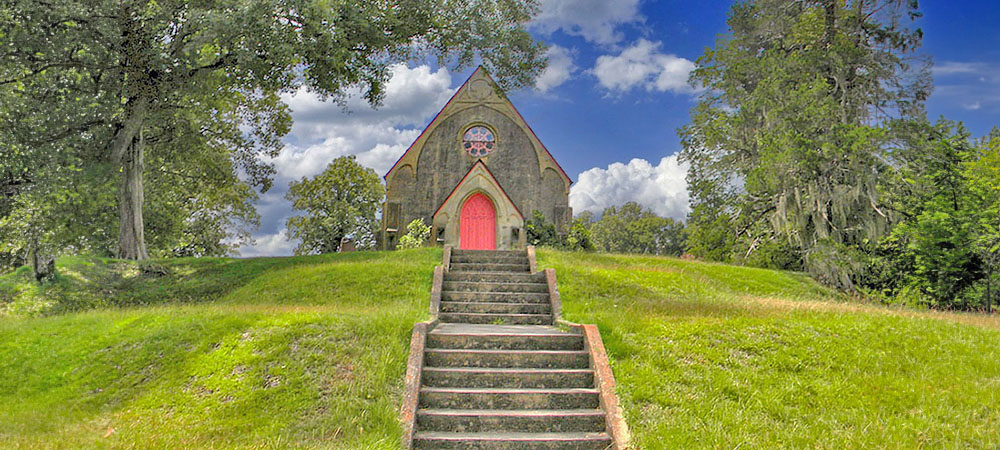
submitted by and photos by Gerald & Tammy Westmoreland

Church Hill, situated in Jefferson County, Mississippi, United States, is a quaint unincorporated community with a rich history dating back to its days as a hub for wealthy cotton planters and enslaved individuals before the American Civil War. Located eight miles east of the Mississippi River and approximately 18 miles north of Natchez, Church Hill occupies a significant intersection formed by Highway 553 and Church Hill Road.
Prior to the Civil War, Church Hill thrived as a community characterized by prosperous cotton plantations and the labor of enslaved people. However, the persistent issue of soil erosion, which had been prevalent even before the war, led to a decline in agricultural productivity, transforming Church Hill into a struggling farming community by the end of the 20th century. Remarkably, despite its economic decline, the area's antebellum buildings have largely remained intact, with few modern structures erected.
The community derives its name from Christ Church, an Episcopal Church perched on a terraced hill at the junction of Church Hill Road and Highway 553. The church, the last of three successive buildings, serves as a testament to the area's historical significance. The craftsmanship and ornate details of the third church, completed in 1858, reflect the wealth of the local planters at that time. Adjacent to Christ Church stands Wagner's Store, a historic establishment that operated until its closure in 1998. Dating stylistically to the mid to late 19th century, the store building is one of the oldest remaining country stores in Mississippi, boasting original interior store counters.
During antebellum times, Church Hill's plantations operated as self-contained communities nestled within clearings in the surrounding woods, with only occasional glimpses visible to travelers along the area roads. However, soil erosion throughout the 19th century gradually diminished the arable land, leading to a shift from cotton to other crops. The devastation caused by the boll weevil in 1933 further exacerbated the area's agricultural challenges, ultimately relegating Church Hill to a state of agricultural decline.
Despite its agricultural struggles, Church Hill retains vestiges of its plantation past, with many of the former owner's residences and other buildings still standing and privately owned. Among these historic properties are The Cedars, Oak Grove, Pecan Grove (also known as the Bluffs), Richland, Springfield, Woodland, and Wyolah, each bearing witness to the community's enduring legacy and resilience amidst changing times.
Church Hill is at the intersection of Hwy 553 and Church Hill Road. GPS: 31.716391, -91.238057
Please share your Jefferson County, Mississippi genealogy and history information, send an email to msghn@outlook.com